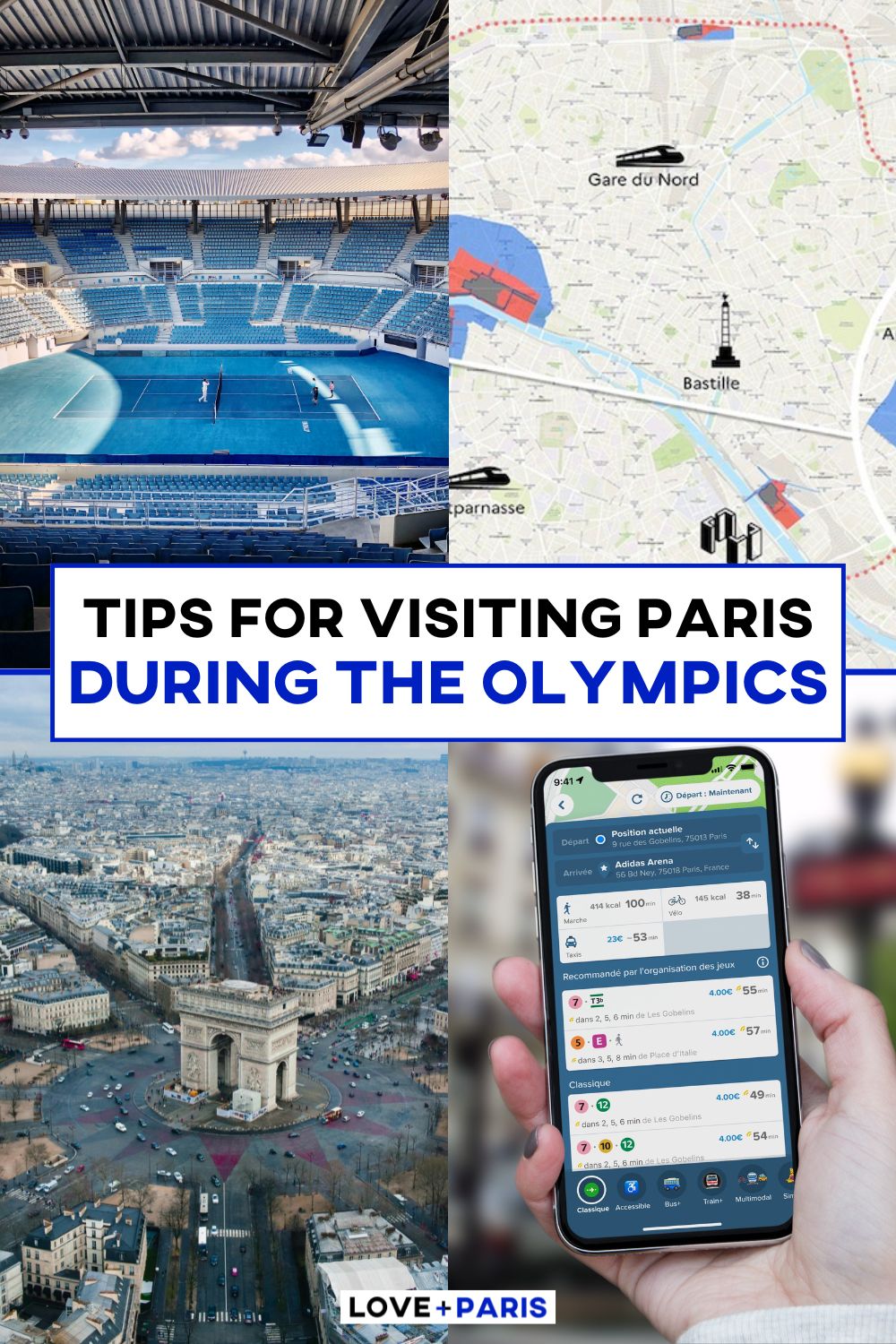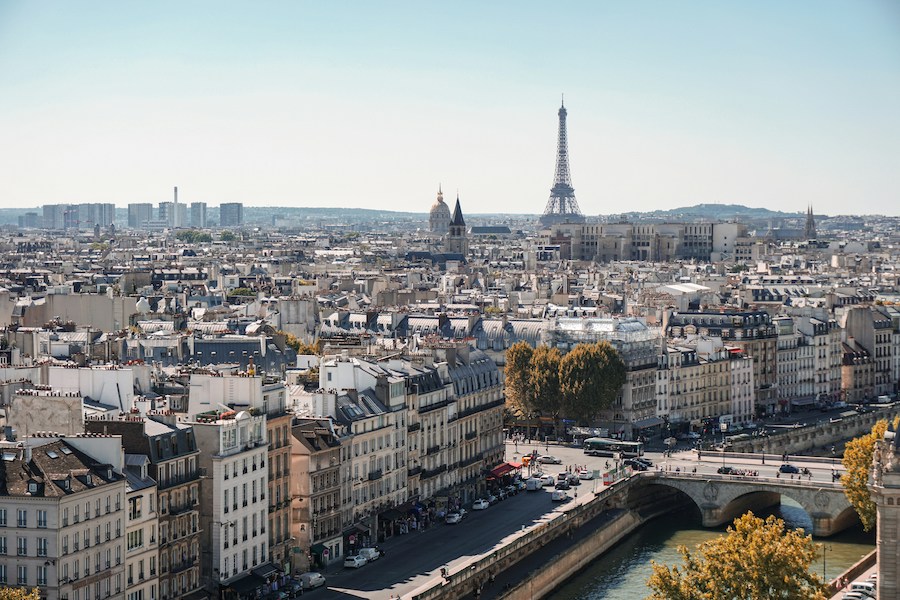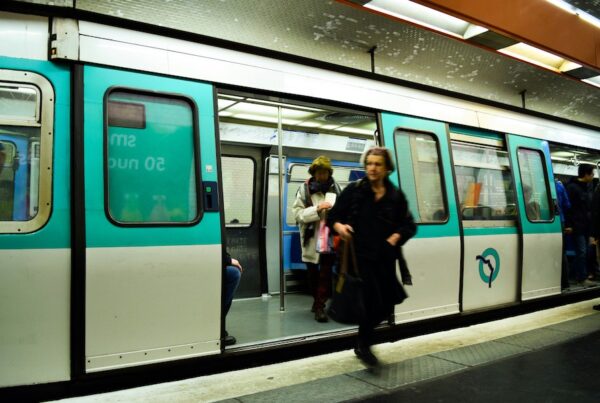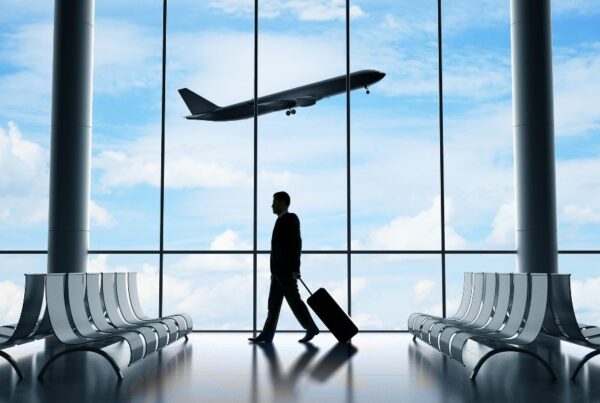It’s going to be a very exciting summer in Paris as the city will be hosting the 2024 Olympics. They’ll be held from 26 July to 11 August, followed by the Paralympics from 28 August to 8 September. Whether you’re coming for the Games or on a regular holiday to Paris any time as of mid-June, there are some crucial things you need to know that’ll help you have as enjoyable and as stress-free a trip as possible. From areas to avoid to tips on dealing with traffic and public transit, here are 10 important things to know if you’re visiting Paris during the Olympics.
*Some of the links in this article will earn a small commission if you click them and then purchase something. Thanks in advance for your support!
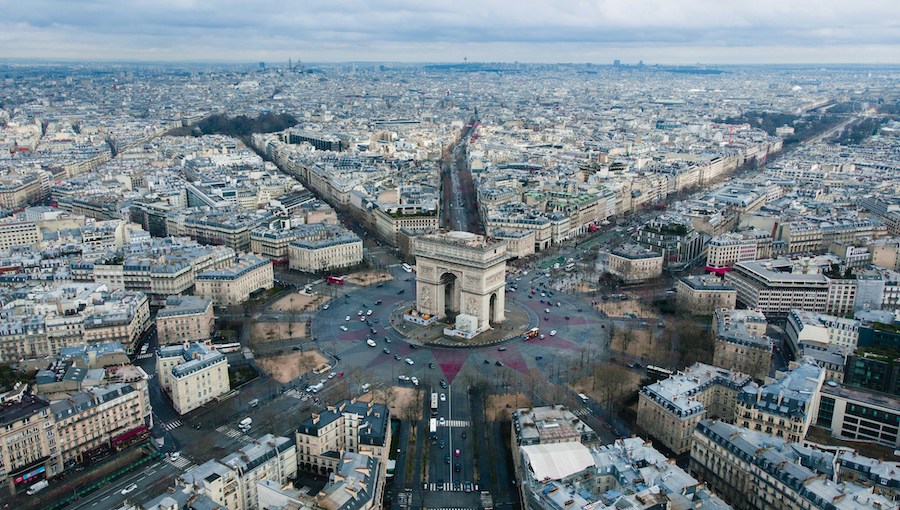
Your stay will cost a LOT more than usual
If you haven’t booked your accommodation yet, be warned that accommodation costs have gone up 30 to 50% during the Games. In addition to increased hotel and apartment rental prices, getting around the city (unless on foot or bike), is also going to cost more. Although there are fixed prices to get from the airport into Paris, with the additional traffic and areas blocked off in the city center, the taxi/uber fares will certainly go up. Public transit is also going to cost more, which we go into further detail below.
If you’d like to be sure to arrive on time or reduce worries over being over-charged, consider booking some pre-scheduled transfers with our partner, Welcome Pickups.
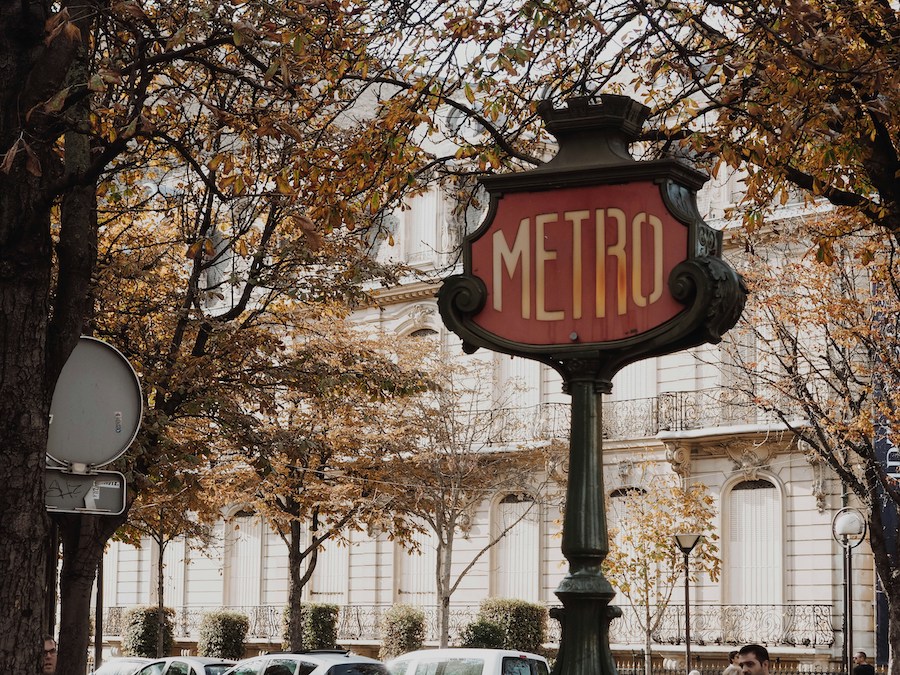
There will be special (more expensive) public transport tickets
We’re big fans of getting around Paris by foot, but most travelers will want to use public transportation at least a few times during their stay. Unfortunately, if you’re visiting Paris during the Olympics, you should know that the public transport company, Île-de-France Mobilités, will be doubling the cost of tickets from July 20 to September 8.
Single tickets will rise from €2.10 to €4, and similar doubled prices will be applied to the suburban train (like the train that goes to the airport we covered in this article). If you think you’ll be taking public transit frequently (if your hotel is in arrondissements 10 to 20 or if you’re attending a lot of events at the Stade de France area), you might want to get an unlimited day pass, which will be €16, decreasing a euro per day during the Olympics for multi-day passes.
However, our best money-saving hack if you’re visiting Paris during the Olympics, is to get around the price hike by “stocking up” on transit tickets in advance. You can do this by downloading the Île-de-France Mobilités app and purchasing single tickets or packs of ten (which are cheaper!), BEFORE July 20 so you can pay the regular price. You can currently purchase virtual tickets through the app if you have an Android phone and (hopefully!) as of June for iPhone users. These regular-priced tickets are still valid for use during the Olympics. For further details, see our full guide to purchasing public transport tickets in Paris.
Another great tip is to use the city’s bike-share system. Called Vélib, there are thousands of stations around the city where you can rent a bike and return it to a different station around the city. There are even electric bikes, which make the journey even easier! Passes are available for one to three days and start at €3 per day. It’s useful to start your Vélib profile ahead of time via its website.
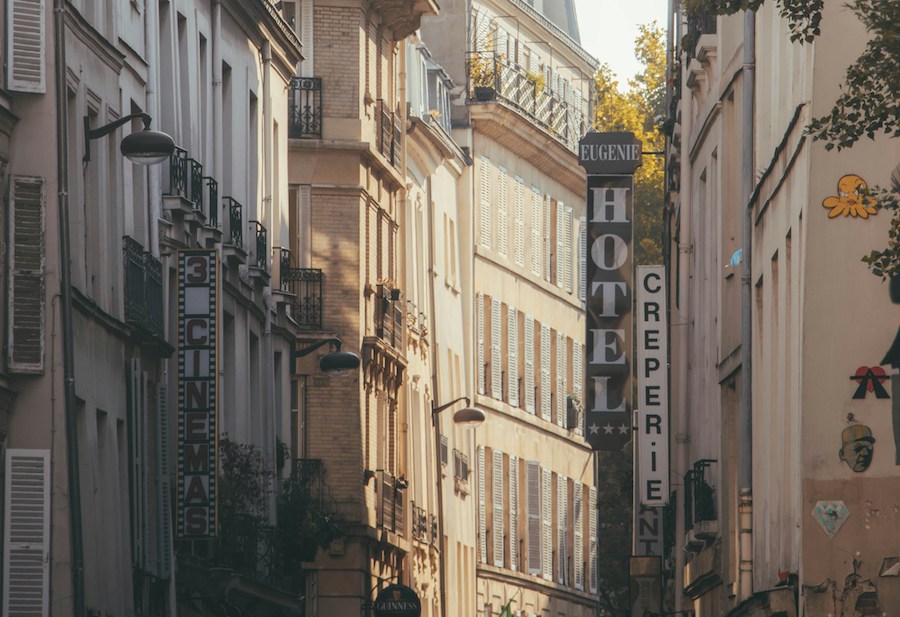
Be cautious about booking an apartment
If you’re considering booking an apartment in Paris during the Olympics, be careful of what you book and through which platforms. There will be a lot of residents renting out their places for the first time, so these might not be up to regular rental standards. There is a greater chance of this happening through ads found on social media channels and some found on large international rental websites. What’s more, many of these rentals likely won’t have air-conditioning, since that’s a rarity in regular Parisian apartments.
Instead, have a look at reputable apart-hotels on sites like Booking.com that have decent ratings to ensure you find something of decent quality, plus there will be staff on hand to help if anything goes wrong.
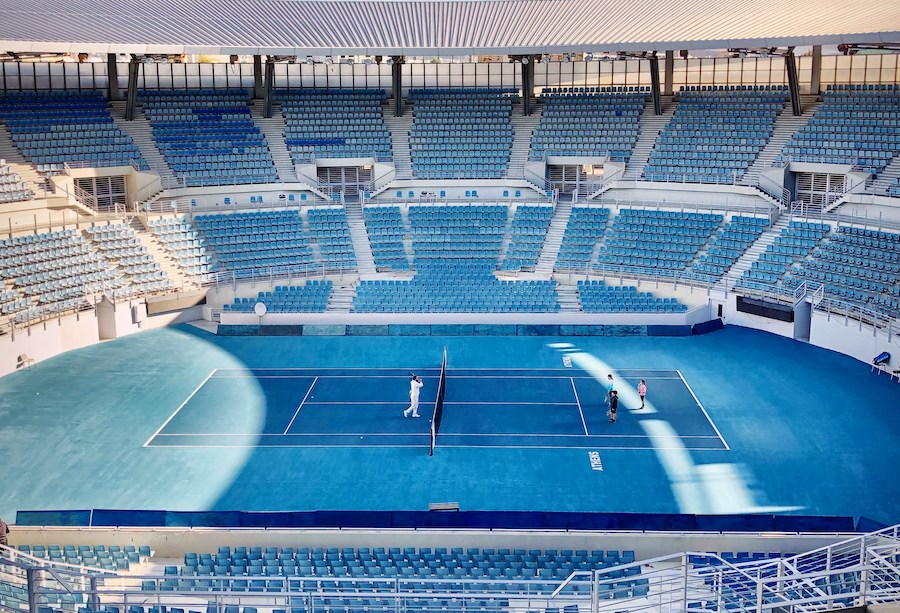
You need a ticket to attend events (but there are still some available)
If you’d like to attend some Olympics sporting events, there are still ways in which you can do this. For most events, you’ll need a ticket – but not for all. The opening ceremony is supposed to be free, although acquiring a free ticket will be required (these haven’t been released yet as of publishing time, track the official City of Paris website for news). Certain other events will be free to watch, such as the triathlon, marathon, and road cycling. You can learn more about these opportunities here.
For ticketed events, some tickets are still available via the official box office. This is especially the case for the Paralympics, which will be equally exciting… and the tickets are also cheaper. You can also buy hospitality packages that include tickets, but these tend to be pricey.

Pictured above are the Gardens at the Palace of Versailles
Sporting events are taking place in different areas around the city
One of the cool things about the Paris Olympics is that some events are not confined to traditional sporting venues. The Olympic Village and several new sporting complexes are near the Stade de France, located north of Paris, however, events will also be held at Place de la Concorde, Les Invalides, the Grand Palais, Versailles, and the Eiffel Tower. This provides a cool backdrop for these sporting events, but also some other issues detailed below.
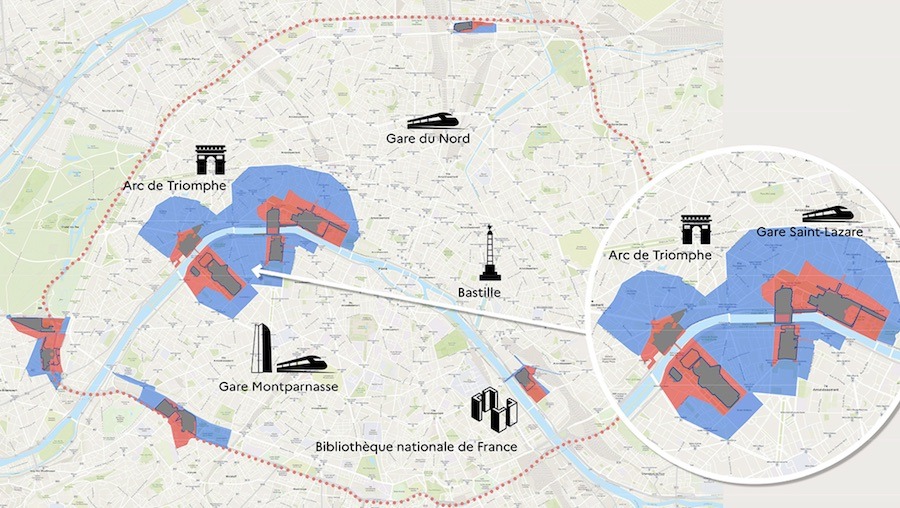
Image Courtesy of Paris News
Certain areas of the city will be blocked off
To ensure that the in-Paris events go off smoothly and safely, there will be security perimeters around these areas – most of which are in western Paris. This will be enforced around each venue 2.5 hours before each event and for an hour afterward. These zones will be accessible only to those with a special QR code, provided to ticket-holders or those living and staying within each zone. So unless you’re attending an event, we recommend you avoid these areas during the day at all costs. See this interactive map (only in French for now), for more details on the areas affected.
If you’re visiting the city as of mid-June, you can expect some traffic issues around the in-Paris event zones as they begin preparing these security perimeters and event structures.
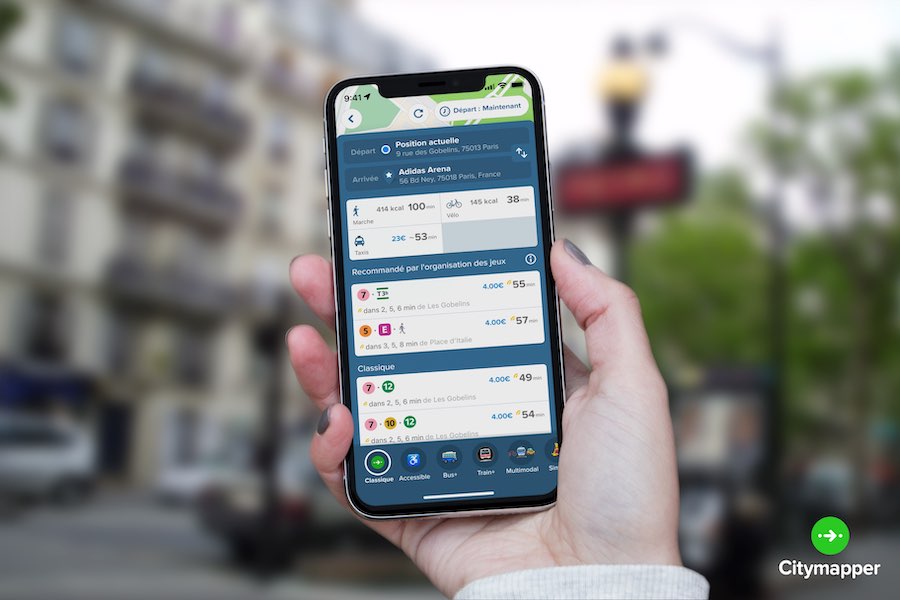
Image Courtesy of Citymapper
It’ll take longer to get around the city
Because of these security zones AND due to the huge influx of people coming to the city for the Games, traffic will be terrible on the whole. Anywhere near the Stade de France (which is on the way into Paris from CDG Airport) and near the in-Paris venues will be really bad, during the day at least. What’s more, métro stations will be closed close to the venues. So if you are attending an event, give yourself plenty of time to get there so you don’t miss it.
To get around smoothly during the Olympics we suggest downloading the Citymapper app. A step above regular phone map apps, Citymapper is unveiling Olympics-specific features thanks to its new collaboration with Ile’-de-France Mobilités. We’re already big fans of the app and these new features will improve public transport flow, minimize overcrowding, and help everyone navigate the city during this busy time with ease and safety.
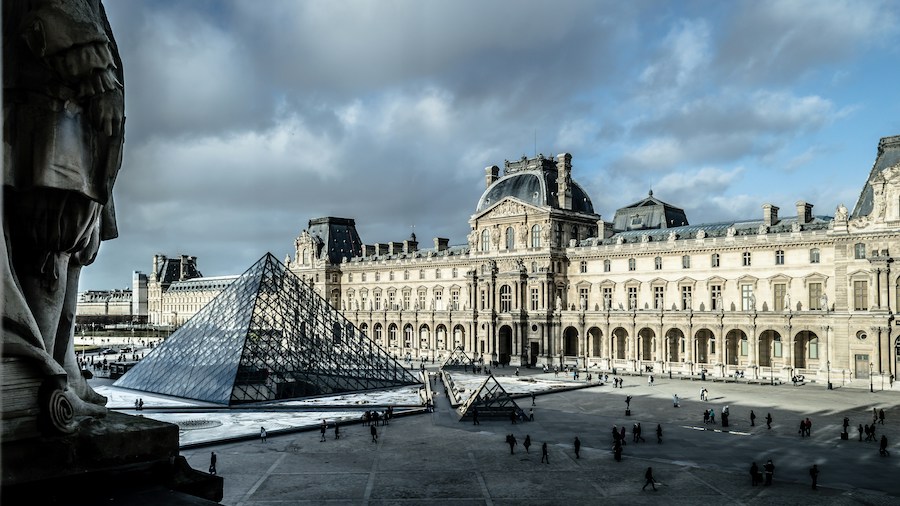
Museums and sites will be extra busy
The visitors who are coming for the Games will also be visiting top Paris attractions, so with an estimated 15 million people coming to the city over this six-week period, we recommend you book all museums and monuments you really want to visit in advance. Advance ticket sales usually start three months in advance for most Paris sites. Alternatively, you might prefer to book some guided tours. Not only will your tickets be handled by the tour provider, guides will also be aware of the best ways to navigate the city and its sites during this time. See some of our favorite tours and experiences in Paris in these articles.
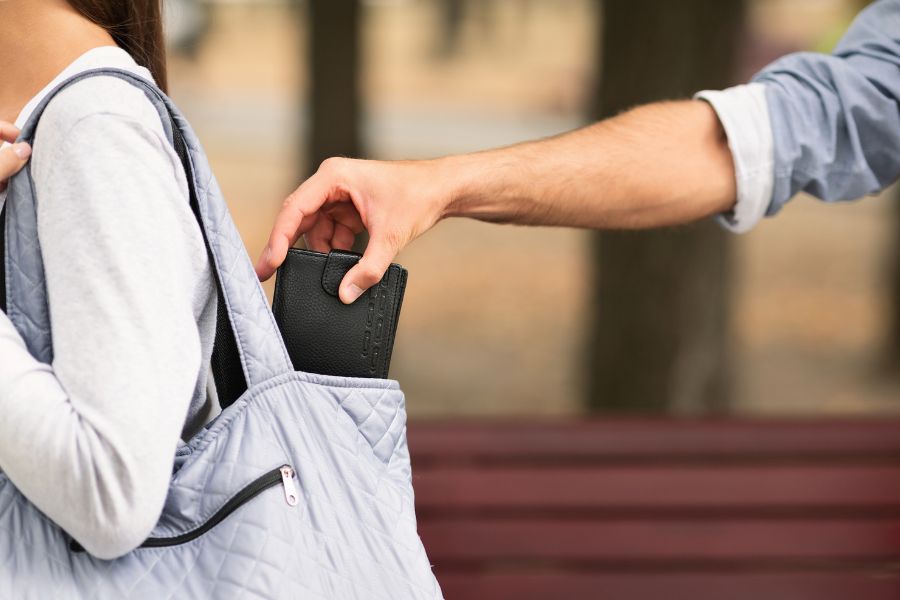
Pickpocketing will likely also be on the rise
As with many other big cities around the world, pickpocketing can occur in Paris, so we recommend you be careful when visiting the city at any time. However, with so many foreign visitors at one time, there’ll likely be an increase in pickpocketing. Therefore, be extra mindful of your belongings, especially around sporting event venues, in crowded museums, on the métro, and when in a café or restaurant never leave your bag on a chair or phone on the table.
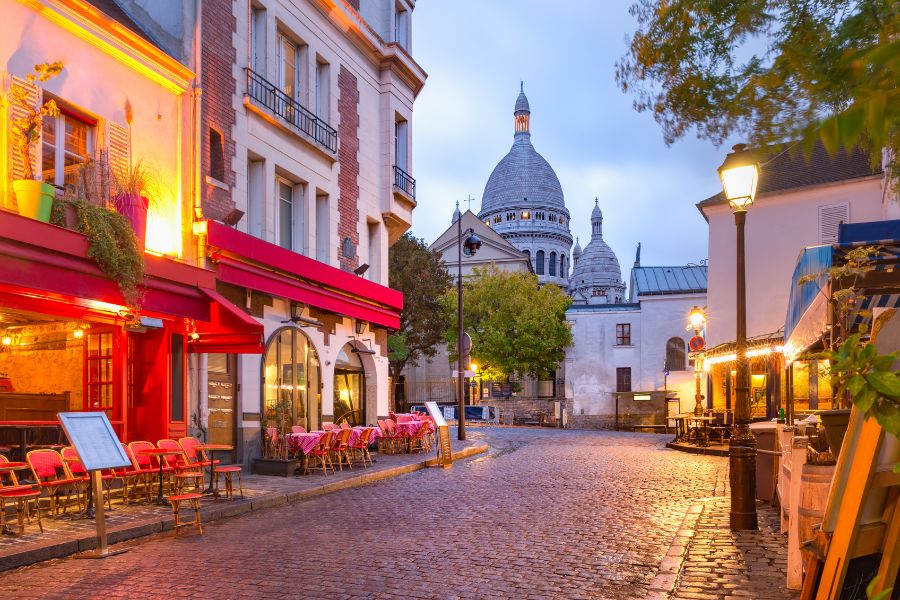
Many great areas of the city WON’T be affected by the Olympics
Although certain parts of the city will be very busy, many amazing areas will be far removed from game venues, making them the perfect escape from the Olympic hecticness. What’s more, as tons of Parisians plan to leave the city, you’ll have these local areas all to yourself. These havens are mostly in eastern Paris and include the Marais, Belleville, Canal St-Martin, Canal de l’Ourcq, and the 12th district. Even further flung is the 13th district, home to the charming former village of La Butte-aux-Cailles and Paris’s vibrant Chinatown.
If you found our article on Visiting Paris During the Olympics helpful, you might also like to read these articles next:
Pin this…
